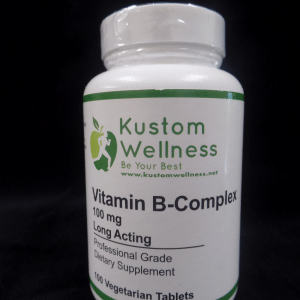Quercetin Plus / 500 mg with Vitamin C & Turmeric
Quercetin may be useful to add quercetin, bromelain and manganese to diet
DESCRIPTION
Quercetin Plus is a unique formulation of quercetin, manganese and bromelain. Quercetin is a bioflavonoid that has excellent antioxidant activity. Manganese synergistically supports the quercetin activity. Bromelain is a proteolytic enzyme purified from pineapple, which is active and stable at the acidic levels found in the stomach.
FUNCTIONS
Quercetin is a naturally occurring bioflavonoid with strong antioxidant activity. The antioxidant activity of quercetin protects the gastrointestinal tract in several ways. First, quercetin prevents oxidation of lipids. The gastrointestinal tract has an increased exposure to oxidative stress due in part to the lowered pH. It is important to protect the lipid bilayer of the cell wall of the gastrointestinal tract because these cells serve as an important part of the body’s immune system.
Secondly, quercetin prevents the depletion of glutathione from the cells of the intestinal tract. Glutathione is a cosubstrate for antioxidant enzymes glutathione peroxidase and glutathione reductase. By preserving the level of glutathione, quercetin protects metabolic activity and cellular structure of the highly vulnerable cells of gastrointestinal tract from toxic free radical damage. Vitamin C synergistically improves the ability of the quercetin to preserve glutathione.
Thirdly, quercetin increases mucus secretion from gastric cells. The mucus polysaccharide provides a protective buffer for the gastric cells from the low pH of the stomach contents. The reduced contact provides protection from gastric lesions. Quercetin provides an antispasmodic activity that prevents the uncontrolled peristaltic activity found in diarrhea. The reduced excretion of the intestinal contents provides benefit to the gastrointestinal tract by preventing the constant production of cellular protective materials.
Quercetin also reduces the immune response to allergens. Quercetin inhibits the IgE-mediated allergic mediator release from mast cells as well as IgG-mediated histamine release. Quercetin is a potent inhibitor of the lipoxygenase that metabolizes arachidonic acid, which is the first step towards proinflammatory arachidonic acid metabolites. Thus, quercetin in the gastrointestinal tract helps protect against gastric lesions that permit highly antigenic proteins, antigenic compounds and/or infective agents from passing into the body. In addition it prevents the release of components of the allergic inflammation response.
Bromelain is a supportive nutrient in helping prevent allergens from crossing the gastrointestinal tract. Bromelain assists in the breakdown of large macromolecular protein complexes. This reduces the chance that these complexes will leave the stomach untouched or in large fractions retaining their recognizable antigenic form that could pass through these gastric lesions inducing an allergenic response.
Found particularly in mitochondria, manganese is a component of several enzymes, including glutamine synthetase, pyruvate carboxylase, and mitochondrial superoxide dismutase (SOD).
Call for Pricing
Product Description
Quercetin may be useful to add quercetin, bromelain and manganese to diet
DESCRIPTION
Quercetin Plus is a unique formulation of quercetin, manganese and bromelain. Quercetin is a bioflavonoid that has excellent antioxidant activity. Manganese synergistically supports the quercetin activity. Bromelain is a proteolytic enzyme purified from pineapple, which is active and stable at the acidic levels found in the stomach.
FUNCTIONS
Quercetin is a naturally occurring bioflavonoid with strong antioxidant activity. The antioxidant activity of quercetin protects the gastrointestinal tract in several ways. First, quercetin prevents oxidation of lipids. The gastrointestinal tract has an increased exposure to oxidative stress due in part to the lowered pH. It is important to protect the lipid bilayer of the cell wall of the gastrointestinal tract because these cells serve as an important part of the body’s immune system.
Secondly, quercetin prevents the depletion of glutathione from the cells of the intestinal tract. Glutathione is a cosubstrate for antioxidant enzymes glutathione peroxidase and glutathione reductase. By preserving the level of glutathione, quercetin protects metabolic activity and cellular structure of the highly vulnerable cells of gastrointestinal tract from toxic free radical damage. Vitamin C synergistically improves the ability of the quercetin to preserve glutathione.
Thirdly, quercetin increases mucus secretion from gastric cells. The mucus polysaccharide provides a protective buffer for the gastric cells from the low pH of the stomach contents. The reduced contact provides protection from gastric lesions. Quercetin provides an antispasmodic activity that prevents the uncontrolled peristaltic activity found in diarrhea. The reduced excretion of the intestinal contents provides benefit to the gastrointestinal tract by preventing the constant production of cellular protective materials.
Quercetin also reduces the immune response to allergens. Quercetin inhibits the IgE-mediated allergic mediator release from mast cells as well as IgG-mediated histamine release. Quercetin is a potent inhibitor of the lipoxygenase that metabolizes arachidonic acid, which is the first step towards proinflammatory arachidonic acid metabolites. Thus, quercetin in the gastrointestinal tract helps protect against gastric lesions that permit highly antigenic proteins, antigenic compounds and/or infective agents from passing into the body. In addition it prevents the release of components of the allergic inflammation response.
Bromelain is a supportive nutrient in helping prevent allergens from crossing the gastrointestinal tract. Bromelain assists in the breakdown of large macromolecular protein complexes. This reduces the chance that these complexes will leave the stomach untouched or in large fractions retaining their recognizable antigenic form that could pass through these gastric lesions inducing an allergenic response.
Found particularly in mitochondria, manganese is a component of several enzymes, including glutamine synthetase, pyruvate carboxylase, and mitochondrial superoxide dismutase (SOD).






Reviews
There are no reviews yet.